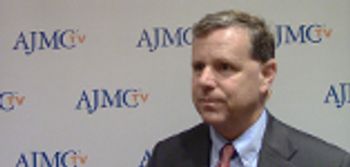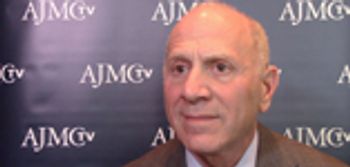
Health Care Delivery
Latest News


There are some areas in health policy where Democrats and Republicans can find common ground, like incentivizing greater value, but bipartisan talks won’t happen while there are still active efforts to repeal the Affordable Care Act, said David M. Cutler, PhD, of Harvard University.


This week, the top managed care news included a report from CMS that found 2 million people dropped Obamacare coverage after failing to pay their premiums; a study found the diabetes drug canagliflozin reduced cardiovascular risk; and the Supreme Court of the United States rules in favor of biosimilars.

The CMS Office of the Actuary released a report projecting the financial and coverage impacts of the American Health Care Act (AHCA) passed by the House of Representatives, finding that 13 million more people would be uninsured by 2026 but the federal government would reduce expenditures by $328 billion.


A new report from CMS has shown that nearly 2 million people who selected an Affordable Care Act health plan on the exchanges did not pay their insurance premium to maintain health coverage just 2 months later.



This week, the top managed care stories included findings that some cancers are being diagnosed earlier after people gain coverage under the Affordable Care Act; a new poll gauged Americans' views on Medicaid; and JDRF launched a new campaign to meet the needs of people with type 1 diabetes.


During a general session at America’s Health Insurance Plans’ Institute & Expo, held June 7-9 in Austin, Texas, Eric Topol, MD, explained the buzz behind precision medicine and why it is needed to combat the harms of imprecision in medicine.


CMS is giving seniors until September 30, 2017, to request a waiver from all or part of the penalties they face for not enrolling on time for Medicare.

Analysis of data available within a national hospital-based registry showed that the diagnosis of stage I disease increased for female breast cancer, colorectal cancer, and lung cancer following implementation of the Affordable Care Act (ACA).

Based on past efforts like the Affordable Care Act and projected future trends, some level of government intervention will be needed to help the healthcare market offer patients access and choice at an affordable price, explained Daniel J. Klein, president and CEO of the Patient Access Network Foundation.

Senate Republicans are faced with a tall task to create a healthcare bill that repeals the Affordable Care Act because they've made conflicting promises. According to David. M. Cutler, PhD, of Harvard University, Senate Republicans have set themselves up for a situation where they can't meet all of their promises.

A Senate working group is already crafting an entirely new version of a replacement for the Affordable Care Act. House Speaker Paul Ryan waited on a new CBO score to make sure the American Health Care Act met necessary savings targets to use the budget reconciliation process to undo Obamacare.

A tailored approach to value assessment will help drive innovation and impact patient outcomes and access to care, said Ilene Hollin, PhD, MPH, of the National Pharmaceutical Council.

While there is a lot of uncertainty about what the final Senate healthcare reform bill will look like, Gail Wilensky, PhD, of Project HOPE, expects the bill will ultimately be to the left of the House bill in order to get the moderates on board.

Healthcare is a complicated issue with few, if any, easy fixes. The important thing is that the country continues to move forward, according to panelists during the first plenary at the ISPOR 22nd Annual International Meeting, held May 20-24 in Boston, Massachusetts.

The proposed budget reportedly includes the $880 billion cut to Medicaid over 10 years that is part of the American Health Care Act. Elsewhere today, the Trump administration is expected to file for a 90-day delay in a lawsuit that could ultimately end subsidies for those buying insurance on the exchanges.

About 40% of new specialty drugs in 2017 are expected to be for orphan drug indications, which is keeping with the trend; however, an upcoming investigation into potential abuses of the Orphan Drug Act could have an unknown impact on development and prices, said Aimee Tharaldson, PharmD, senior clinical consultant for emerging therapeutics at Express Scripts.

With the high cost of new drugs to cure hepatitis C, ensuring that real-world outcomes are consistent with those seen in clinical trials is important, explained Gail Bridges, PharmD, of Accredo Health. She explained that Accredo ensured patients adhered to hepatitis C drugs in order to get the best outcomes through a disease- and drug-specific education program.

In a wide-ranging discussion, panelists at the 12th annual meeting of the Pharmacy Quality Alliance discuss the role of pharmacy benefit managers, the prospects of changes to Medicaid, and how the cloud of uncertainty affects planning decisions.




